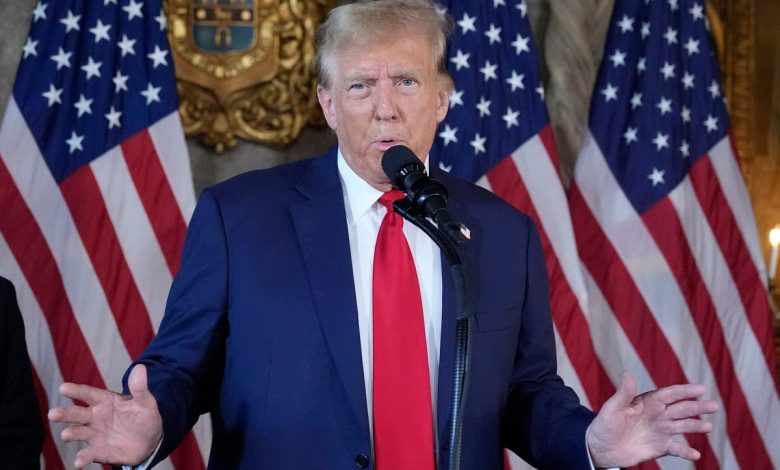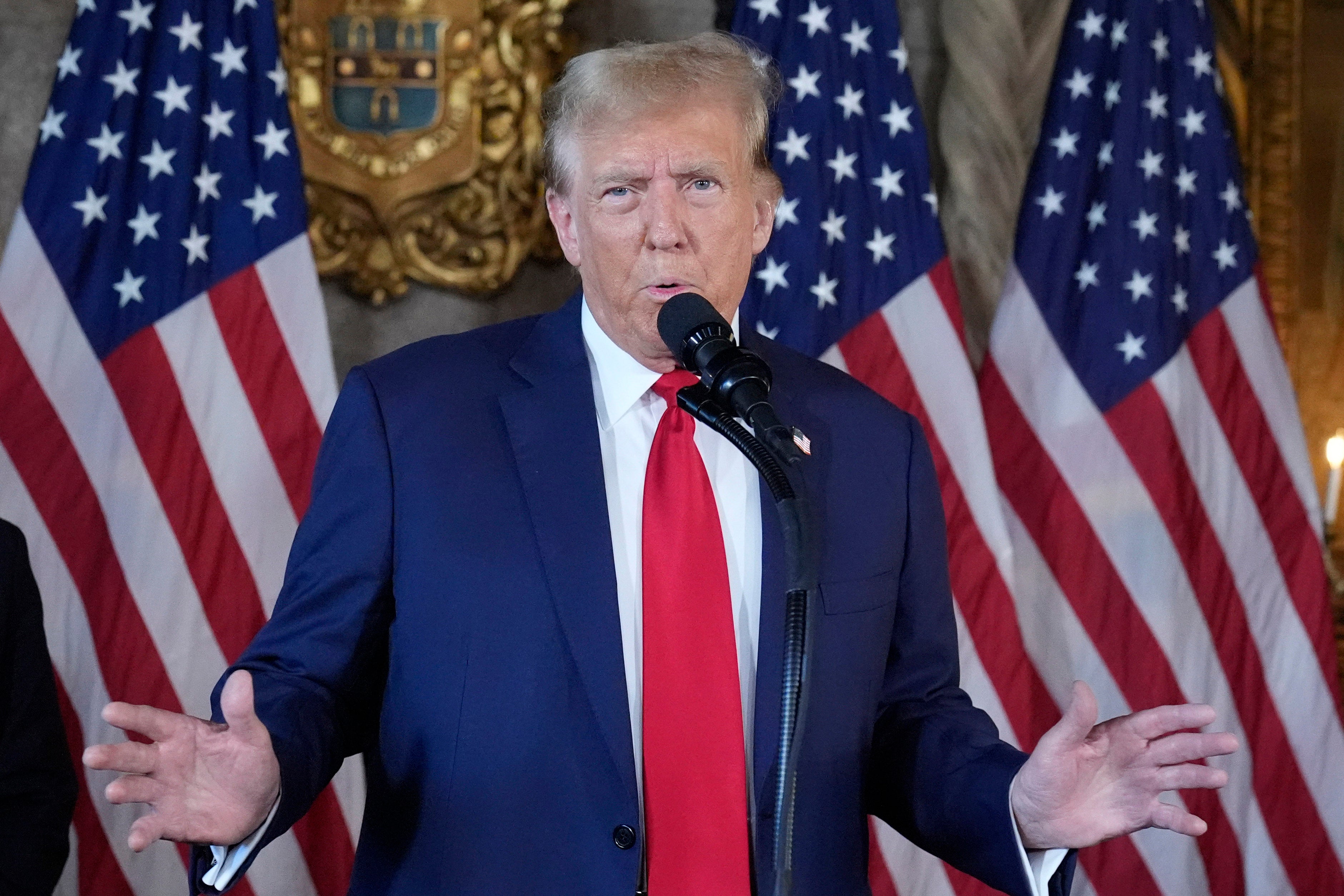Mar-a-Lago judge allows activist attorneys to defend Trump in court

The federal judge presiding over Donald Trump’s classified documents case in Florida will allow several parties uninvolved in the case to argue in court over Trump’s attempt to dismiss the charges against him, an extraordinary and rare move from a judge who has come under fire for a series of favorable rulings for the convicted former president.
US District Judge Aileen Cannon – who was appointed to the bench by Trump in 2020 – will allow two right-wing activist attorneys to argue in support of Trump’s motion to dismiss the charges against him by claiming that special counsel Jack Smith was unlawfully appointed.
The judge will hear from Josh Blackman with the conservative Landmark Legal Foundation as well as Gene Schaerr, who represents right-wing Citizen United legal advocacy group and a Heritage Foundation-linked group of former Republican attorneys general.
In a motion to argue in support of Trump, the groups claimed that the US Supreme Court “will take a keen interest” in the judge’s decision, signaling that a challenge at the nation’s highest court could follow, prolonging a trial over Trump’s allegedly unlawful retention of classified materials at his Mar-a-Lago compound.
Judge Cannon also allowed one constitutional law expert, Matthew Seligman with Stanford’s Constitutional Law Center, to defend Smith’s appointment on behalf of a group of former federal officials and US attorneys, legal scholars and pro-democracy advocates.
Oral arguments on Trump’s motion are scheduled for June 21. Prosecutors and Trump’s attorneys must file their briefs by June 11.
It is highly unusual for a federal trial judge to allow third parties who are not affiliated with the case to argue in court during a criminal case as part of the defendant’s challenge to the case itself.
The judge’s rare decision to allow those so-called amici or “friends of court” to argue in the courtroom – not just in court filings – signals that she could be compelled to disqualify Smith and dismiss the case against Trump based on their arguments.
Her decision came the same day that Republican members of Congress grilled US Attorney General Merrick Garland about the appointment of special counsels.
Republican US Rep Thomas Massie even made the connection, writing that he asked Garland during a House Judiciary Committee hearing whether Smith’s office “is even legal,” holding up a filing from one of the amici about that
“A few hours later, Judge Cannon agreed to allow that question to be debated in the courtroom,” Massie said.
During a heated exchange during Tuesday’s hearing, Garland said he appointed Smith as an “independent, nonpartisan with a record of career experience as a prosecutor.”
“That seemed to me the perfect resume,” he said.

Judge Cannon has repeatedly come under fire from legal analysts who claim that she is slow-walking the case against Trump to avoid a trial before the 2024 presidential election.
More than 1,000 complaints about the judge were submitted to a court that oversees her Florida district within one week last month.
The former president faces 40 separate charges stemming from allegations that he withheld hundreds of classified documents after leaving the White House for his private Mar-a-Lago compound in Florida, then conspired to obstruct government attempts to retrieve them.
He has pleaded not guilty.
His co-defendants Walt Nauta and Carlos De Oliveira, who are accused of helping Trump mishandle documents at the Florida property, have also pleaded not guilty.
Those charges are among dozens facing the former president, who was found guilty last week on 34 counts of falsifying business records in connection with a hush money scheme to boost his chances of winning the 2016 election.
He also is criminally charged in Georgia and at the federal level in Washington DC for his attempts to overturn 2020 election results.







